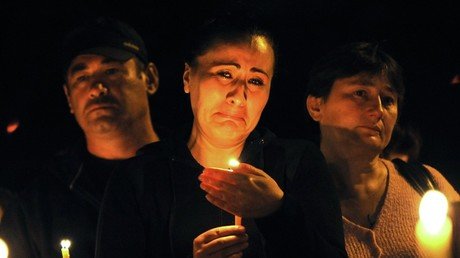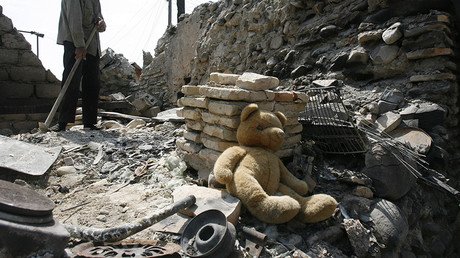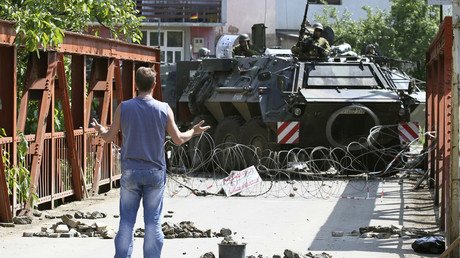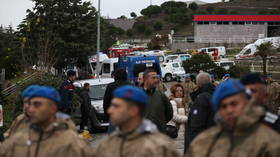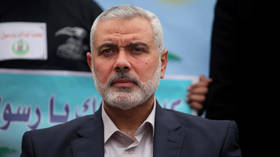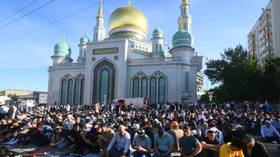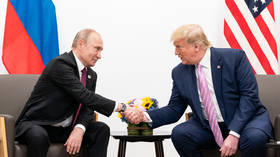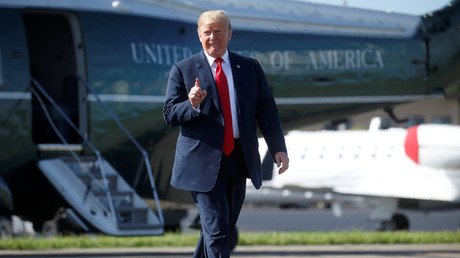‘Unstable’ Saakashvili, NATO spot for Georgia: Medvedev digs deep in interview on 2008 war
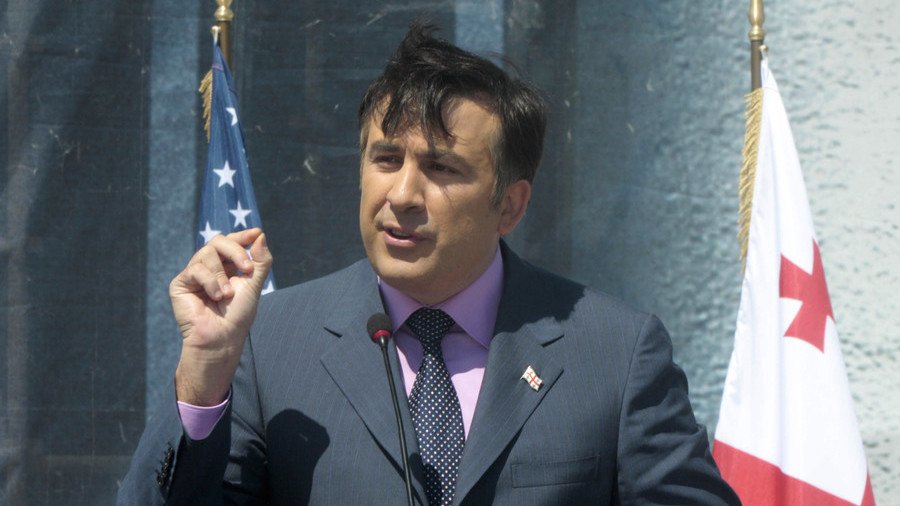
Was the 2008 war with Georgia inevitable? Why did Russia recognize breakaway regions as sovereign nations after it? Could NATO accept Georgia, Kosovo or Northern Cyprus as new allies?
Dmitry Medvedev, who was Russia's president in 2008 when Georgia attacked its breakaway region of South Ossetia, triggering a war with Russia, gave an extensive interview on those events just as the 10th anniversary looms. Speaking to the Kommersant newspaper, he recalled how Russian policies during and after the crisis were taken and what long-term consequences the decade-old war has today.
Asked whether the war, which was based on old ethnic rivalries in Georgia, was inevitable, Medvedev insisted it was the result of a decision taken by Georgian leadership and then-President Mikhail Saakashvili.
"The root of the problem was certainly in the events of the 1990s and the decisions taken during the 1990s in Tbilisi, which were not accepted in either Abkhazia or South Ossetia," he said, referring to the bloody conflicts in the two regions in the aftermath of the collapse of the Soviet Union, which resulted in their de-facto independence.
"But before 2008 those negative processes and even outbursts of sporadic violence were being managed. And in 2008 the Georgian government including the president gave the green light to the aggression and what happened happened. This was not inevitable. It was definitely the subjective choice of Saakashvili and his aides."
On the night of August 8 Georgian troops launched an attack on South Ossetia, subjecting its capital Tskhinval to indiscriminate shelling. Russian peacekeepers stationed in the area to monitor the ceasefire as well as Russian citizens living in Tskhinval were killed, prompting Russia to respond with military force. Saakashvili still insists that the attack was a pre-emptive strike to prevent a Russian invasion of Georgia.
Medvedev believes that the decision to attack South Ossetia was taken at least a month before it was started, based on how Saakashvili cut diplomatic contacts with Russia.
"We had some agreements about meetings and contacts, and then I definitely remember that starting with June 2008 [Saakashvili] became unavailable. I didn't pay much attention to it at the time, but now I believe that it was part of an established path," the Russian prime minister said. "By that time, I believe, Saakashvili was convinced that the Americans would support him no matter what."
READ MORE: Ex-Georgian President Saakashvili pens fantasy account of 2008 war with Russia
The West's darling with an adventurous streak, Saakashvili was praised by many US officials for the reforms he conducted within the country. His government was receiving substantial financial aid from the US and the EU and Georgian troops served alongside NATO allies in Afghanistan and Iraq, having received training and equipment from members of the bloc. A month before the attack on Tskhinval, Georgia was assured of eventual membership during a NATO summit in Bucharest.
Medvedev said the character of the Georgian president was a key factor in his decision to recognize Abkhazia and South Ossetia as sovereign states and offer them military protection afterwards.
"Considering that such a mentally unstable person served as Georgian president at the time, there were simply no other options," he said. "Not everybody understands that messing with Russia for the sake of pursuing some unrealistic ideas there would be too costly. If the situation was left unresolved, they would think they could get away with constant provocations, hope they could grab some land in yet another stupid military campaign and so on."
The decision, which was criticized by the West, made Russia's southern border more stable and saved lives in Abkhazia and South Ossetia, Medvedev assured. He added that the fact that Saakashvili's political career in Georgia was apparently over "is very good for Georgia itself."
Georgia is still pursuing NATO membership and the alliance leadership states that this will eventually happen. Medvedev said accepting the nation into the bloc would be very dangerous, considering its claim on the two regions under Russian protection.
"Our colleagues from the North Atlantic Alliance may look around and come up with other brilliant ideas. Kosovo could be accepted as a NATO member. Northern Cyprus could be accepted as a NATO member. How would that improve the situation in the world?" he said.
"If this is just a diplomatic trick, saying 'sure, we'll take you, don't worry' while not actually doing anything – that would be a different story altogether," he added.
The Russian prime minister also spoke about how quickly Russia's relations with Western nations recovered after the 2008 war, compared to the latest political crisis, triggered by the events in Ukraine in 2014, when a West-supported armed coup toppled the government and placed a new one with a radically anti-Russian stance in power. According to Medvedev, the difference is in the position of other nations, not Russia.
"Speaking bluntly, Russia's position is that if our partners showed more willingness to cooperate during the events in Ukraine instead of just trying to switch the blame on Russia, if they were more balanced, like was the case in 2008, the situation would have been much simpler," he said.
After the 2008 war the EU ordered an independent probe into what happened. It confirmed that Georgia started the aggression against its breakaway region, but blamed Russia for a disproportionate response to it. Medvedev said it was a matter of opinion and that the important part of the final report was the confirmation of Georgia's aggression. "This cannot be erased from history anymore," he said.
Think your friends would be interested? Share this story!
